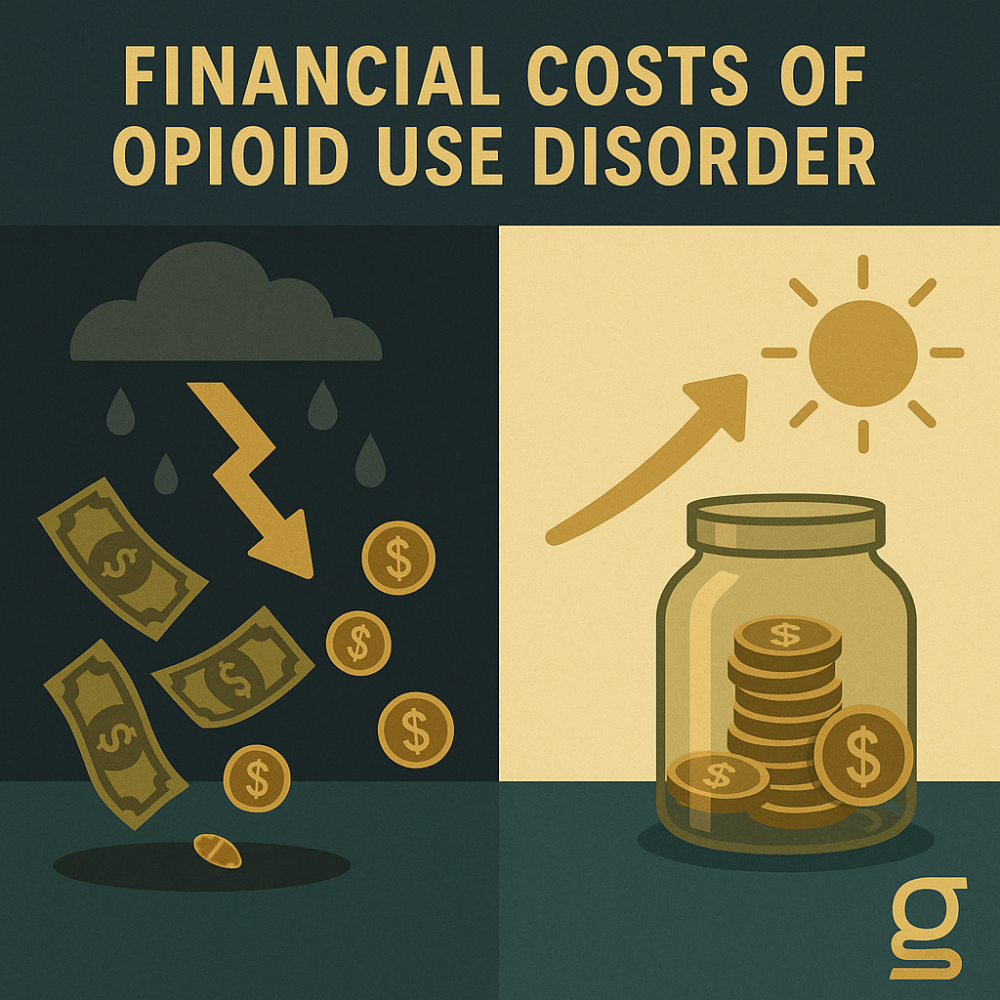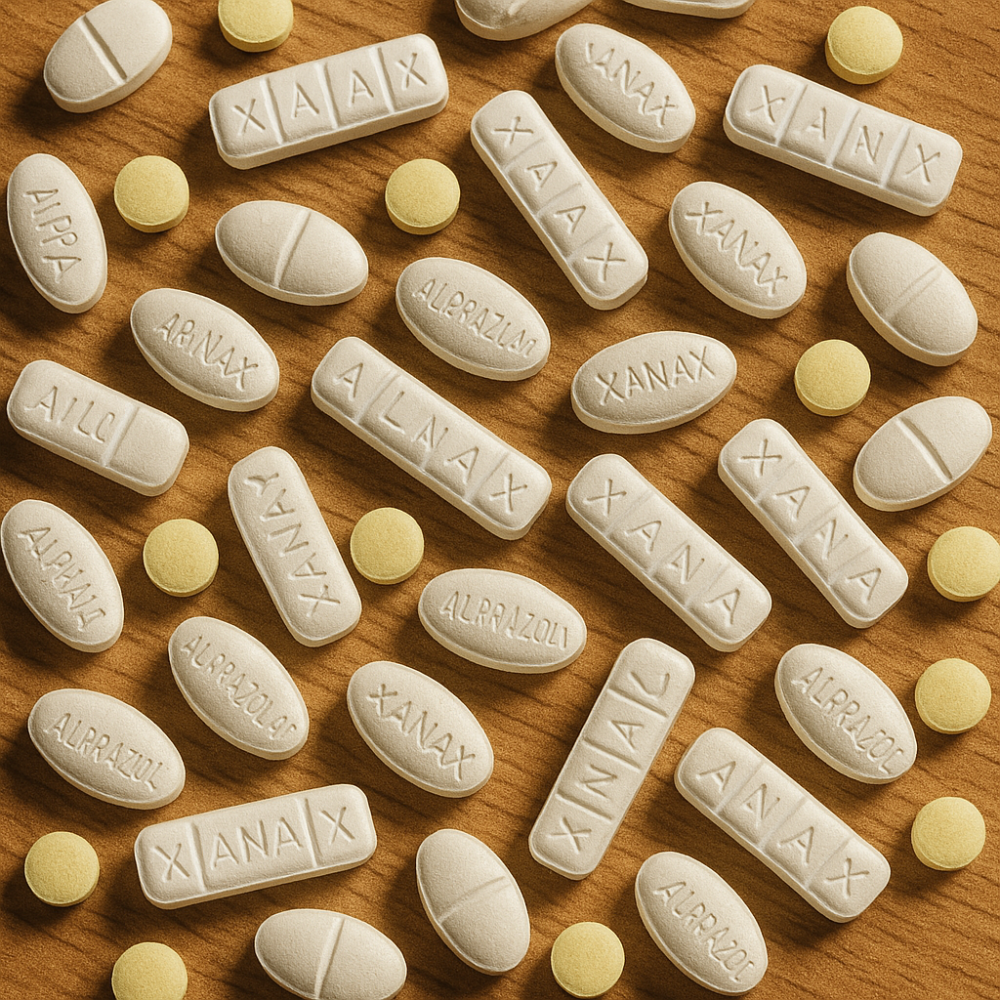If used short-term and taken as prescribed, prescription opioids effectively relieve moderate-to-severe pain. Doctors often prescribe opioids to treat post-surgical pain and pain in terminal cancer patients. However, after reassurance from drug manufacturers that opioids were not addictive, doctors began widely prescribing the drug in the mid-1980s and early 1990s to treat chronic, non-cancer pain, like back pain, fueling the opioid overdose crisis that continues today.1,2
The opioid drug class includes prescription opioids such as oxycodone (OxyContin®), hydrocodone (Vicodin®), codeine, morphine, and others, synthetic opioids such as fentanyl, and the illegal drug heroin.3
Approximately 108,000 Americans died in 2021 because of a drug overdose; almost 75 percent of those deaths involved opioids.4 The United States Drug Enforcement Administration (DEA) identifies illegally manufactured fentanyl as the “primary driver of the increase in total overdose deaths.”5
Why are Opioids So Dangerous?
While users value fentanyl and other opioids for effects like relaxation, euphoria, and pain relief, opioids can also have dangerous consequences, most notably respiratory depression, which is the “primary cause of opioid-induced death.”6
Respiratory depression can occur with too high a dose of an opioid, causing breathing to slow to a dangerously low rate. When the respiratory rate falls below 12 breaths per minute, the brain does not receive enough oxygen, which can cause coma, brain damage, or death.7
Because fentanyl is 50 to 100 times stronger than morphine, illicit drug manufacturers often mix the drug with heroin, illegally packaged opioid pills, and cocaine and methamphetamine to increase potency and profits. Users buy heroin or other street drugs, unaware they contain deadly fentanyl, and often succumb to overdose.7
How Do Opioids Affect the Brain?
Opioids activate opioid receptors in brain nerve cells to block pain signals and increase feelings of well-being. Opioids affect the reward center of the brain, triggering the brain to release unnaturally high levels of chemicals like dopamine, which flood the brain with a sense of euphoria. The feeling of pleasure is so intense that the user is motivated to continue drug-seeking behavior.8
As opioid use continues, the brain demands higher or more frequent doses of the drug to deliver the desired effect. This demand for more significant amounts is called tolerance and often leads to dependence, a physical and psychological need for the drug. Once a person depends on an addictive substance and stops taking it, they will experience withdrawal symptoms.9 Drug dependence often leads to addiction, defined by the American Society of Addiction Medicine as “a treatable, chronic medical disease involving complex interactions among brain circuits, genetics, the environment, and an individual’s life experiences.”10
The clinical name for opioid addiction is opioid use disorder (OUD). The latest edition of the Diagnostic and Statistical Manual of Mental Disorders, 5th edition (DSM-5), provides a checklist of criteria to assist physicians in diagnosing OUD.11
Long-term opioid use can cause devastating changes in the brain, some of which may be permanent. The Academy of Certified Brain Injury Specialists cites studies identifying loss of brain volume and cognitive impairment, including impairment of memory, attention, spatial planning, and executive functions from long-term opioid use.12
Warning Signs of Opioid Addiction
Are you worried a loved one is addicted to opioids? Although opioid addiction may be difficult to detect in the early stages, experts at the Mayo Clinic find mood or behavioral changes can be early signs.13 Listen to your instincts — if you suspect your loved one is abusing dangerous drugs, take action; you could save a life.
Johns Hopkins Medicine and the Mayo Clinic give the following common signs of opioid addiction:14,15
- The inability to control opioid use and intense cravings
- Taking the drug other than as prescribed or taking it for its euphoric effects
- Borrowing medication or “losing” it and requesting a refill
- Seeking the same prescription from multiple doctors to have a “backup” supply
- Taking opioids “just in case,” although not in pain
- Financial or legal difficulties
- Mood changes, including excessive swings from elation to hostility
- Drowsiness
- Changes in sleep habits
- Weight loss
- Frequent flu-like symptoms
- Decreased libido
- Lack of hygiene
- Changes in exercise habits
- Isolation from family or friends
- Stealing from family, friends, or businesses
You Believe Your Loved One is Addicted to Opioids — What Now?
As discussed above, opioids cause such profound changes to the brain’s pleasure and reward functions that an addicted person has difficulty accessing pleasurable feelings or dulling pain without the drug. It’s challenging for someone addicted to opioids to recognize they need help or to even acknowledge they have a problem. Professional guidance is crucial in helping your loved one overcome addiction.
What can you do to help?
- Educate yourself about addiction. The more you understand why it’s so hard for your loved one to stop behavior with such negative consequences, the more you will be able to offer constructive help. The Yale Medicine fact sheet is an excellent place to begin.16
- Attend a support group for those with an addicted loved one. You will receive valuable education, tips, and support from others walking your same path. Support groups like Nar-Anon are spiritually based, while others like LifeRing or Smart Recovery are secular.17
- Gather information on support groups for your loved one and rehabilitation treatment options, including medical detoxification.
- Prepare for and then start the conversation about their drug use. The Substance Abuse and Mental Health Services Administration (SAMHSA) provides helpful tips for this critical discussion.18
- Consider an intervention to encourage your loved one to agree to treatment.19
Above all, don’t be afraid to act if you think your loved one is addicted to opioids. You may save their life.
Contact Gallus Medical Detox Centers to find out why we are a Center of Excellence (COE) in providing inpatient medical detoxification services to those struggling with substance use disorder.
At Gallus, our skilled team will not only keep you safe during detox, but we will also keep you comfortable. Call today for information.
Sources
- https://www.cdc.gov/opioids/basics/prescribed.html
- https://www.forbes.com/sites/quora/2019/11/07/what-role-did-doctors-and-drug-companies-play-in-the-opioid-crisis/?sh=2b3e3fe3612d
- https://www.dea.gov/highlight-topics/opioids
- https://www.cdc.gov/nchs/data/databriefs/db428.pdf
- https://www.dea.gov/resources/facts-about-fentanyl
- https://pubmed.ncbi.nlm.nih.gov/35471232/
- https://www.dea.gov/factsheets/fentanyl
- https://www.medicalnewstoday.com/articles/opioid-effects-on-the-brain#effects-on-the-brain
- https://www.medicalnewstoday.com/articles/opioid-effects-on-the-brain#effects-on-the-brain
- https://www.asam.org/quality-care/definition-of-addiction
- https://www.cdc.gov/drugoverdose/training/oud/accessible/index.html
- https://www.biausa.org/public-affairs/media/persistent-and-abusive-use-of-opioids
- https://www.mayoclinic.org/diseases-conditions/prescription-drug-abuse/in-depth/how-to-tell-if-a-loved-one-is-abusing-opioids/art-20386038
- https://www.hopkinsmedicine.org/opioids/signs-of-opioid-abuse.html
- https://www.mayoclinic.org/diseases-conditions/prescription-drug-abuse/in-depth/how-to-tell-if-a-loved-one-is-abusing-opioids/art-20386038
- https://www.yalemedicine.org/conditions/opioid-use-disorder
- https://www.verywellmind.com/secular-alcohol-and-drug-rehab-programs-67702
- https://www.samhsa.gov/sites/default/files/starting-the-conversation-guide.pdf
- https://www.mayoclinic.org/diseases-conditions/mental-illness/in-depth/intervention/art-20047451


 Steve B
Steve B 

 Casey Wilson
Casey Wilson